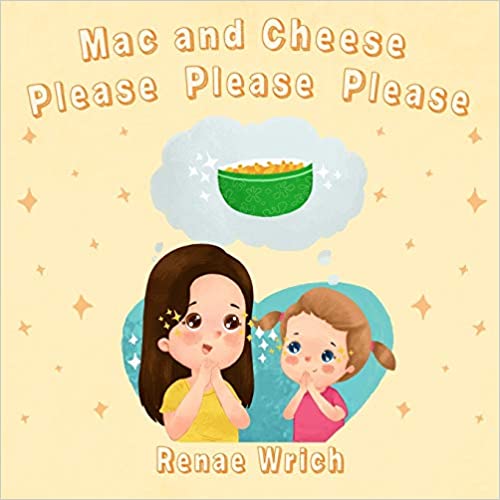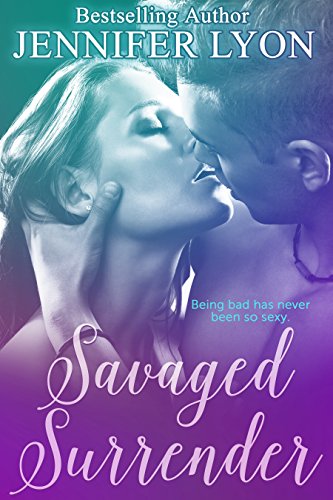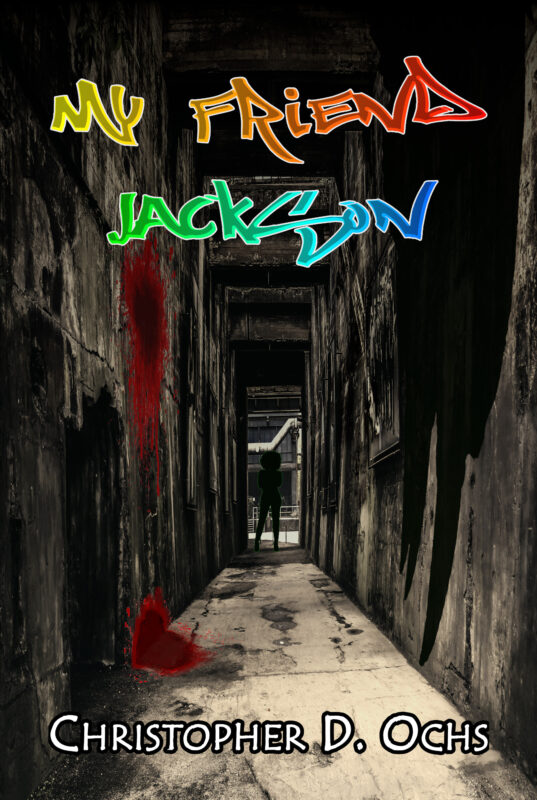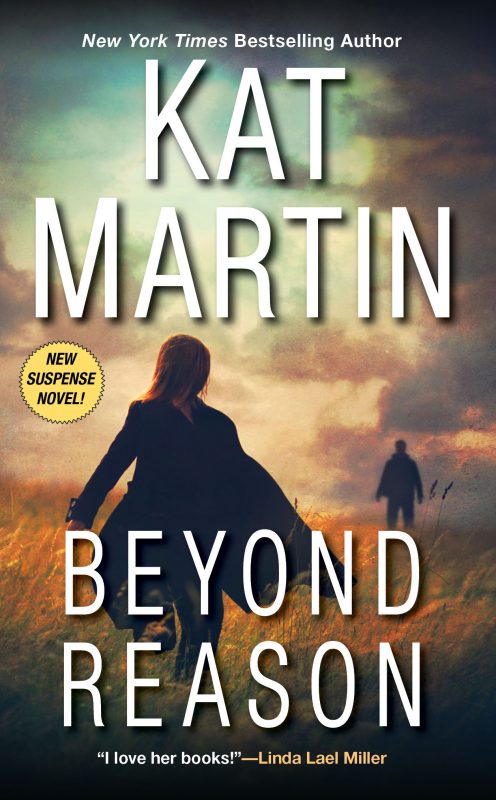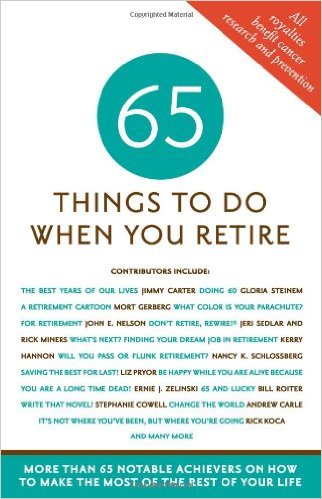Feel the Sizzle by Diane Sismour
September 13, 2021 by Bethlehem Writers Group in category From a Cabin in the Woods by Members of Bethlehem Writers Group tagged as conferences, Killer Nashville, Virtual Conference, Zoom
The pandemic had done something for writers far beyond our normal expectations—brought us closer together through zoom, messenger, virtual conferences, etc. (the list could fill a journal). Group members who moved beyond borders could join in regular sessions, again. Concepts exchanged and stories created with more help than preconceived prior to the shutdowns, shut-ins, and quarantines. A writer’s world no longer had to remain solitary.
The amount of meetings grew exponentially last year to escape the realities outside our own walls. We continued to stare at flat images of the people we used to associate with in person, missing the contact, but willing to sacrifice to stay connected. Writers who guarded works in fear that another could steal their premise, now shared on screen—something most wouldn’t have done pre-Covid-19.
Virtual conferences replaced the normal frenzy of booking transportation, accommodations, and higher fees. Networking parties turned to impersonal chat rooms. Pitches changed from connecting with the agent or editor who could take our novels to the next phase, to remaining quiet on the screen by sitting on hands hoping we said enough. The ease with which we introverted writers pivoted to accept them was profound.
However, without the personal contact, I missed the sizzle. The anticipation of a conference and the creative buzz around the banquets would energize me for months. I took the risk, vaccinated and precautions taken, and so happy for the outcome. This year’s Killer Nashville Writing Conference was the best I had been to in years. Many of the usual crowd stayed home, opening doors for new voices.
Whether the excitement created was from the sense of normalcy or the energy stirred by so many creative minds, the mood snapped me up and brought me back to my writing desk with noisy, chattering characters. Every penny and second spent was more than worthwhile to feel that sizzle again. Happy writing!

Diane Sismour has written poetry and fiction for over 35 years in multiple genres. She lives with her husband in eastern Pennsylvania at the foothills of the Blue Mountains. Diane is a member of Romance Writers of America, Bethlehem Writer’s Group LLC, Horror Writers Association, and Liberty States Fiction Writers. She enjoys interviewing other authors and leading writer’s workshops.
Her website is www.dianesismour.com, and her blog is www.dianesismour.blogspot.com.
You can find her on Facebook and Twitter at: http://facebook.com/dianesismour, http://facebook.com/networkforthearts, and https://twitter.com/dianesismour.
Using Journal Entries in Your Manuscript
September 12, 2021 by Denise M. Colby in category The Writing Journey by Denise Colby tagged as characters, historical romance, journalsEarly on, I wanted my heroine to have a journal. Not quite sure why, but capturing her journey through a journal stuck as I brainstormed my scenes. Some writers write character journals for their characters to help them see things from their character’s perspective. But for me, I wanted my heroine to actually have a journal in my story.
Have you read many books using journal entries throughout the story?
I actually have come across a very limited amount of books using journal entries throughout the story. In my manuscript, there is an entry at the beginning of every chapter. I was excited a few years ago to find a book that had this and found that it worked. But I haven’t found a lot of books this way, so that’s a good thing.
I’m even considering it to be possibly a thing I do in all of them, but we will see.
I’m curious to know if this is something that appeals to readers or not.
I have seen a journal or diary entry as a plot point or in a scene. I actually have some of those as well since her writing in her journal is part of her story.
Do you write in a journal?
If you do, do you ever worry about someone reading what you wrote?
My heroine gets handed a journal upon her start as a teacher. In it, she’s instructed to write down the events of her days to capture what happens as a female teacher who moves West to teach in small pioneer towns.
Olivia finds her journal to be a close confidant. She enjoys documenting her observances about the places she’s been and the people she meets. Given that it’s 1869 and traveling by train across the country is a new and unprecedented event, the importance in capturing the momentous occasion is not lost on her.
She’s also very protective of her book. It never leaves her side and she would never leave it out so that someone could read it. But even if they did, she is very careful what she writes, never putting to paper her own thoughts and opinions, just in case someone else might read it and pass judgement on her.
See judgement stings and her fear of being judged stems from…well…I don’t want to give too much away.
Creating realistic journal entries
I created a small diary in Olivia’s hand, so that I could think like her and feel what it might’ve been like all those years ago to have a small diary to write down words that could be read one hundred years later.

What she was doing was so new in 1869.
Traveling across the country, women came west to teach in one-room schoolhouses and in order to make a difference in the life of a child, and for herself as well.
I wonder, in real life, how many of them kept a journal? And if they had any idea that we would be reading what they wrote so many years later?
Denise loves journals and has several laying around her home at any given time. She wrote about her bullet journal page design ideas for writers in an earlier post and this year she started a journal just for her word of the year quotes. The one she uses the most is her prayer journal. Check out her how to start a prayer journal page on her website.
The toughest book I’ve ever written… by Jina Bacarr
September 11, 2021 by Jina Bacarr in category Jina’s Book Chat, Writing tagged as books, pars, perfume, writing
Sometimes there are no words for how you feel… and a picture says it best.
Tonight I got hit by a double whammy.
9/11 and Dachau.
I watched two TV shows back to back… the first dealing with the fabulous documentary on CNN by French filmmakers and brothers, Gédéon and Jules Naudet, and firefighter James Hanlon. on 9/11 and the New York Fire Department… exceptional and gripping filmmaking.
And next a story about World War 2 shot in color by Hollywood director, George Stevens, and what he filmed when he visited Dachau in May 1945.
What do they have in common?
Well, this story will post on 9/11 on the 20th anniversary and I can’t not take a few moments to stop and ask for a moment of silence for all those who died… and those who survived who still have nightmares and heavy hearts. It’s something we do every year and this year it’s especially important.
May we never forget.
———-
The second TV show has to do with the toughest book I ever had to write. It’s about a beautiful perfumer who fights the Nazis, is arrested and sent to Dachau… I won’t give away the story except to say my heroine’s ability as a ‘nose’ or perfume creator gives her a different perspective on what survivors of the Holocaust experienced. Her talent puts her in a unique situation to tread on a different plane when she’s sent to the infamous concentration camp near Munich, Germany.
And how she survives…
Doing the research for my book was a soul-searching experience that makes me grateful for every day lived, every meal I enjoy…. every night of blissful sleep. No one coming for you… no beatings, degradation and humiliation (especially the treatment of women by SS guards) no rationing of the simplest things, no privacy, and for so many, no hope.
What sent me into tears tonight was when I saw the liberation of Dachau in color… the camp prisoners’ striped ‘pajamas’, the beetle-green German uniforms, the pure white snow… scorched red brick buildings… the hot yellow flames still burning in the crematoriums.
It was chilling.
What made this book so tough to write goes beyond just reading about the horror these people endured. I tried on a very small scale to experience the physical and mental emotions… wearing the same sweats and socks for a few days, not leaving the house, rationing my food to a bare minimum, deactivating social media to cut myself off so I’d have no idea what was happening the world. Setting my alarm to wake myself at odd hours to get a feeling of the uncertainty of life.
I was a mess in a few days.
I want to emphasize what I did was on an extremely small scale compared to the reality of the camps, but the hunger and feeling unclean and the loneliness became very real to me. It gave me a better perspective on how quickly lives changed when innocent, hard-working good people were rounded up — Jews, Roma, LGBT, political dissidents… even German citizens who simply spoke out against the Reich.
How some were sent to their death immediately, while others went to labor camps, a slow death. (‘You don’t come to Auschwitz to live,’ they said, ‘but to die’.) The prisoners in the camps endured unspeakable conditions for months… years.
So many were lost.
But so many did survive.
And it’s their stories I listened to, watched in documentaries, read in first person accounts. I urge you to do so, too.
We must never forget the Holocaust.
And unite in a sisterhood of remembrance. And never, ever, let it happen again.
Jina
——————-
My new Paris WW 2 novel is called THE LOST GIRL IN PARIS and is up on Amazon for pre-order. I don’t have a cover yet, but here’s a graphic I put together and the blurb:

‘I will never forget what the Nazi did to me. Never‘
1940, Nazi-occupied Paris. A powerful story of love, tragedy and incredible courage, about one woman whose life is ripped apart by war and risks everything to seek justice. Brand new from the bestselling author of The Resistance Girl.
As Nazis patrol the streets of the French capital, Tiena is alone, desperate and on the run. After defending herself against the force of an officer, she must find a new identity in order to survive.
An accidental meeting with members of the Resistance gives her a lifeline, as she is offered the chance to reinvent herself as perfumer Angéline De Cadieux.
However Angéline will never forget what happened to her, and will do everything she can to seek revenge. But vengeance can be a dangerous game, and Angeline can only hide her true identity for so long before her past catches up with her, with some devastating consequences…
Paris, 2003. When the opportunity arises for aspiring journalist Emma Keane to interview world renowned perfumer Madame De Cadieux about her life during World War Two, she is determined to take it. There are secrets from her own family history that she hopes Angéline may be able to help unlock.
But nothing can prepare Emma for Angéline’s story, and one thing is for certain – it will change her own life forever…
An absolutely heartbreaking, unforgettable historical novel of war, sacrifice and survival. Perfect for fans of Suzanne Goldring, Ella Carey and Catherine Hokin.
Some Encouraging Words by Kitty Bucholtz
September 9, 2021 by Kitty Bucholtz in category It's Worth It by Kitty Bucholtz, Writing tagged as encouragement, Kitty Bucholtz, writing lifeOne of the best parts of coaching and podcasting is encouraging the person I’m talking to. It makes me happy to know I’ve given someone some extra energy and enthusiasm to keep going. I know a few people who are not writers who listen to my Encouraging Words episodes on the first Sunday of every month just because they like them. 🙂
In case you haven’t heard any of these episodes, here is the latest one asking a very important question no matter who you are — Are you focusing on the positive or the negative? I hope it gives you food for thought and gets your day and week moving in the direction that will change your life for the better!
Lots of love and hugs to you!
Hunting Teddy Roosevelt Book Tour and Excerpt
September 8, 2021 by marianne h donley in category Rabt Book Tours, Writing tagged as #excerpt, @RABTBookTours, Hunting Teddy RooseveltHistorical Fiction
Date Published: 7/31/2020
Publisher: Regal House Publishing
It’s 1909, and Teddy Roosevelt is not only hunting in Africa, he’s being hunted. The safari is a time of discovery, both personal and political. In Africa, Roosevelt encounters Sudanese slave traders, Belgian colonial atrocities, and German preparations for war. He reconnects with a childhood sweetheart, Maggie, now a globe-trotting newspaper reporter sent by William Randolph Hearst to chronicle safari adventures and uncover the former president’s future political plans. But James Pierpont Morgan, the most powerful private citizen of his era, wants Roosevelt out of politics permanently. Afraid that the trust-busting president’s return to power will be disastrous for American business, he plants a killer on the safari staff to arrange a fatal accident. Roosevelt narrowly escapes the killer’s traps while leading two hundred and sixty-four men on foot through the savannas, jungles, and semi-deserts of Kenya, Tanzania, Uganda, Congo, and Sudan.
About the Author
James A. Ross has at various times been a Peace Corps Volunteer, a CBS News Producer in the Congo, a Congressional Staffer and a Wall Street Lawyer. His short fiction has appeared in numerous literary publications and his short story, Aux Secours, was nominated for a Pushcart prize. His debut historical novel, HUNTING TEDDY ROOSEVELT won the Independent Press Distinguished Favorite Award for historical fiction, and was shortlisted for the Goethe Historical Fiction Award. His debut mystery/thriller, COLDWATER REVENGE, launched in April 2021 and is available wherever books are sold. Ross’s on-line stories and live performances can be found at: https://jamesrossauthor.com.
Contact Links
Purchase Links
A man always has two reasons for what he does—a good reason, and the real one.
J. P. Morgan
NEW YORK CITY
WINTER 1908
THIRTY-TWO YEARS LATER
J. P. Morgan stood at a window of his Manhattan townhouse and watched his two guests alight from separate horse-drawn carriages. Neither was aware he was about to help plan the assassination of the outgoing president of the United States.
Andrew Carnegie, aging steel tycoon and the wealthiest man in the world, emerged from his plain black coach accompanied by a grey-coated footman who brushed snow from the old man’s cape and lent an arm for support. Behind him, William Randolph Hearst emerged unassisted from a gold-trimmed carriage as large and gaudy as Carnegie’s was plain. Ignoring the wind and the cold, the newspaper publisher lifted his chin toward lower Manhattan as if to survey a tiny portion of his rapidly growing dominion. Then turning toward the townhouse, he mounted the snow-covered stairs two at a time.
Inside, a uniformed butler ushered Hearst and Carnegie into the library, while another brought hot cider in a silver pitcher to the teetotaler Carnegie, and a Cointreau to the newspaperman Hearst.
“Gentleman,” said J. P. Morgan when the butler had finished serving libations and closed the twenty-foot high mahogany doors behind him. “Our esteemed and soon to be ex-president, Theodore Roosevelt, has decided to follow George Washington’s example and not run for a third term. When he leaves office in a few weeks, he will lead an expedition to Africa to collect specimens of various game animals for the Smithsonian Museum and the New York Museum of Natural History.”
“Hear, hear,” said Hearst.
Carnegie fixed a rheumy eye on Morgan and said nothing.
“The museum sponsors will be content if our beloved president slaughters a sufficient number of beasts to fill their exhibit halls, but we, the financial and journalistic backers of the Roosevelt safari, have different measures of success. I’ve asked you here so that we might discuss what we hope to gain from our respective investments of money and newsprint, to help each other if possible, and, at a minimum, to avoid working at cross purposes.”
Carnegie put down his cup of hot cider and waved a bony finger at Morgan. “We know what you want, Pierpont: Roosevelt out of the country for a year so you can work with his successor to undo all that trust-busting nonsense. If he should take up with some African princess and never come back, so much the better!”
Morgan inclined his head. “Indeed, Andrew. I believe our cowboy president to be a fool of the worst kind: capable, energetic, convinced of his own myopic wisdom, enormously popular, and damn near unstoppable. But as long as he intends to gift the country with a temporary respite from his overbearing personality, I would like to use that gift to good purpose. As do you.”
Carnegie drove the tip of his mahogany cane into the Persian rug at his feet. “Yes. To put those fine qualities you just listed to work for a higher purpose—peace and progress.”
Morgan cocked his head.
“Unlike you, Pierpont, I’m fond of our presidential cyclone. He doesn’t understand business. We all know that. But he’s a force of nature. Unstoppable. Once he’s out of office, I want to harness that force on behalf of progress.”
Hearst placed his Cointreau on the small rosewood table at his side. “What did you have in mind, Andrew?”
“World peace. As I’ve said and written.”
Hearst laughed. “Theodore Roosevelt? Cowboy, Rough Rider, builder of the Great White Fleet? He’s a warmonger, sir.”
“You should talk!” Carnegie snapped.
The self-assured young publisher seemed to enjoy provoking the older Carnegie, but Morgan needed both for what he had in mind.
Carnegie ignored Hearst and addressed himself to Morgan. “The Swedes gave Roosevelt their Nobel Prize for helping the Russians and Japanese mend their differences after Port Arthur. I want him do the same with the Kaiser, the French, and the British. To talk them out of their disastrous arms race. In exchange for my paying half the safari’s costs, our peace-loving president has agreed to stop in Berlin on his way back from Africa to meet with the German Kaiser. What I want, since you ask, are arrangements for his protection. I don’t care to spend a small fortune financing the largest safari in history, only to have some savage put an end to world peace with the point of a spear.”
Morgan exhaled a cloud of cigar smoke and watched it rise toward the Mowbray mural overhead. “U.S. Steel has the Pinkertons on permanent hire. I can arrange for them to guard President Roosevelt while he’s on safari. But is another European war such a bad thing? For America, I mean.”
Carnegie choked on his cider, glaring sideways at Hearst and then at Morgan. “Don’t tell me you’ve become a warmonger, too, Pierpont! I’ve spent half my life making steel and watching the god-awful things people do to each other with it. Do you know that there’s a cannon now that can hurl a hundred-pound shell thirty miles and level a whole city block? Guns that can fire a thousand bullets a minute? Modern war is insanity!”
Morgan exhaled a cloud of smoke and watched it rise toward the ceiling. “You misunderstand me, Andrew. I’ve read your books and I admire your principles. But the American economy is now as strong as any in Europe. If England, France and Germany get into another war and America stays out, that may be our nation’s chance to finally fulfill its destiny: to become the dominant global power and reap the rewards that go with it.”
Carnegie shook his head in disappointment.
Hearst rolled a cut glass tumbler between his palms and smiled. “An interesting point, Mr. Morgan. But I must confess that my newspapers are more experienced at promoting foreign wars than keeping us out of them.”
“A legacy I wouldn’t want to defend when my time came,” Carnegie muttered.
Morgan raised a hand. “What does Congressman Hearst see as a satisfactory outcome to the Roosevelt safari? Or Publisher Hearst, if you prefer.”
The newspaperman put down his drink. “They’re the same. Congressman and publisher both want an African version of the Buffalo Bill’s Wild West show. Ivory-fanged lions and dark African maidens. Not a word on domestic politics or global affairs. Theodore Roosevelt returns from Africa as famous as ever, but as a gaudy adventurer, not a serious politician. My newspapers will sell a million copies, and no one will consider Roosevelt a serious candidate if he decides to run for president again in 1912. Remember, his pledge was not to run for a third consecutive term. He left the door wide open for another nonconsecutive term.”
“Do you have someone else in mind for the position, Randolph?”
Hearst smiled and remained silent. Morgan knew perfectly well who the Hearst newspapers planned to promote as the next president of the United States—their owner and publisher, William Randolph Hearst.
Lighting his twentieth cigar of the day, Morgan tossed the cutting into a fifteenth-century Italian marble fireplace deep enough to roast several of Roosevelt’s African big game animals together. “Well gentlemen, our views of a successful African safari may differ, but our actions needn’t interfere with one another. I will arrange protection for Citizen Roosevelt to see that he comes to no harm before he can meet with the German Kaiser on behalf of world peace. I will use the coming months to educate the incoming administration on the benefits of a less hostile relationship with business. Mr. Hearst’s newspapers will provide ample coverage of African animal slaughter, but not a drop of ink about our former president’s idiotic views on global economics or business regulation. As long as we get what we want, Mr. Carnegie and I will continue to provide the Smithsonian with funds to pay for this enormous undertaking. Are we agreed?”
Hearst raised his tumbler. Carnegie nodded. Morgan suppressed a smile.
Affiliate Links
A Slice of Orange is an affiliate with some of the booksellers listed on this website, including Barnes & Nobel, Books A Million, iBooks, Kobo, and Smashwords. This means A Slice of Orange may earn a small advertising fee from sales made through the links used on this website. There are reminders of these affiliate links on the pages for individual books.
Search A Slice of Orange
Find a Column
Archives
Featured Books
MAC AND CHEESE, PLEASE, PLEASE, PLEASE
They liked macaroni and cheese SO much, if they could, they would eat it for breakfast, dinner, and lunch!
More info →MY FRIEND JACKSON
Can Jasmine untangle her life and reclaim her identity, her life—her soul?
More info →BEYOND REASON
She’s determined to be successful—no matter who tries to stop her.
More info →65 THINGS TO DO WHEN YOU RETIRE
Practical and entertaining advice about how to create a fulfilling retirement.
More info →Newsletter
Contributing Authors
Search A Slice of Orange
Find a Column
Archives
Authors in the Bookstore
- A. E. Decker
- A. J. Scudiere
- A.J. Sidransky
- Abby Collette
- Alanna Lucus
- Albert Marrin
- Alice Duncan
- Alina K. Field
- Alison Green Myers
- Andi Lawrencovna
- Andrew C Raiford
- Angela Pryce
- Aviva Vaughn
- Barbara Ankrum
- Bethlehem Writers Group, LLC
- Carol L. Wright
- Celeste Barclay
- Christina Alexandra
- Christopher D. Ochs
- Claire Davon
- Claire Naden
- Courtnee Turner Hoyle
- Courtney Annicchiarico
- D. Lieber
- Daniel V. Meier Jr.
- Debra Dixon
- Debra H. Goldstein
- Debra Holland
- Dee Ann Palmer
- Denise M. Colby
- Diane Benefiel
- Diane Sismour
- Dianna Sinovic
- DT Krippene
- E.B. Dawson
- Emilie Dallaire
- Emily Brightwell
- Emily PW Murphy
- Fae Rowen
- Faith L. Justice
- Frances Amati
- Geralyn Corcillo
- Glynnis Campbell
- Greg Jolley
- H. O. Charles
- Jaclyn Roché
- Jacqueline Diamond
- Janet Lynn and Will Zeilinger
- Jeff Baird
- Jenna Barwin
- Jenne Kern
- Jennifer D. Bokal
- Jennifer Lyon
- Jerome W. McFadden
- Jill Piscitello
- Jina Bacarr
- Jo A. Hiestand
- Jodi Bogert
- Jolina Petersheim
- Jonathan Maberry
- Joy Allyson
- Judy Duarte
- Justin Murphy
- Justine Davis
- Kat Martin
- Kidd Wadsworth
- Kitty Bucholtz
- Kristy Tate
- Larry Deibert
- Larry Hamilton
- Laura Drake
- Laurie Stevens
- Leslie Knowles
- Li-Ying Lundquist
- Linda Carroll-Bradd
- Linda Lappin
- Linda McLaughlin
- Linda O. Johnston
- Lisa Preston
- Lolo Paige
- Loran Holt
- Lyssa Kay Adams
- Madeline Ash
- Margarita Engle
- Marguerite Quantaine
- Marianne H. Donley
- Mary Castillo
- Maureen Klovers
- Megan Haskell
- Melanie Waterbury
- Melisa Rivero
- Melissa Chambers
- Melodie Winawer
- Meriam Wilhelm
- Mikel J. Wilson
- Mindy Neff
- Monica McCabe
- Nancy Brashear
- Neetu Malik
- Nikki Prince
- Once Upon Anthologies
- Paula Gail Benson
- Penny Reid
- Peter Barbour
- Priscilla Oliveras
- R. H. Kohno
- Rachel Hailey
- Ralph Hieb
- Ramcy Diek
- Ransom Stephens
- Rebecca Forster
- Renae Wrich
- Roxy Matthews
- Ryder Hunte Clancy
- Sally Paradysz
- Sheila Colón-Bagley
- Simone de Muñoz
- Sophie Barnes
- Susan Squires
- T. D. Fox
- Tara C. Allred
- Tara Lain
- Tari Lynn Jewett
- Terri Osburn
- Tracy Reed
- Vera Jane Cook
- Vicki Crum
- Writing Something Romantic
Affiliate Links
A Slice of Orange is an affiliate with some of the booksellers listed on this website, including Barnes & Nobel, Books A Million, iBooks, Kobo, and Smashwords. This means A Slice of Orange may earn a small advertising fee from sales made through the links used on this website. There are reminders of these affiliate links on the pages for individual books.


















